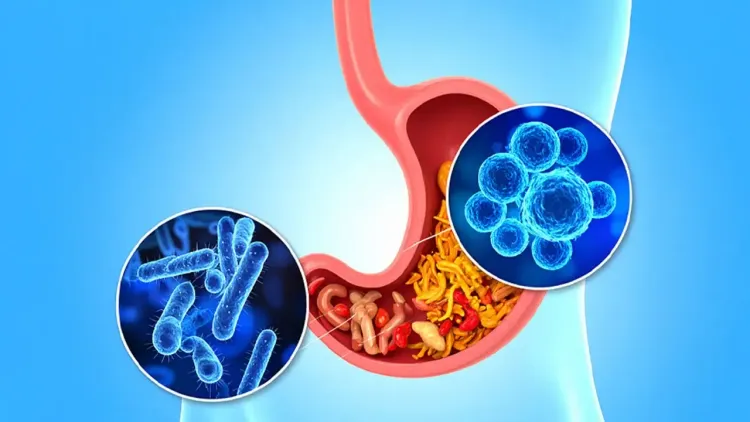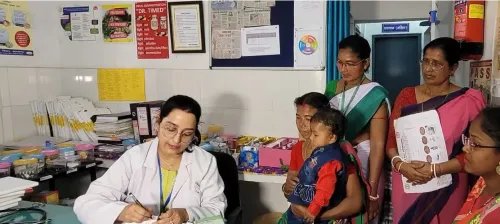Can a New Antibiotic Effectively Combat C. difficile with a Low Dose?

Synopsis
Key Takeaways
- EVG7 shows promising results against C. difficile.
- Minimal dosing is effective in reducing recurrence.
- Preservation of beneficial gut bacteria is crucial.
- Lower doses can help combat antibiotic resistance.
- Research highlights the need for innovative treatments.
New Delhi, Oct 14 (NationPress) A groundbreaking new antibiotic, EVG7, has shown remarkable efficacy in combating the perilous gut bacterium C. difficile with just a minimal dosage, according to recent research.
C. difficile is a resilient intestinal bacterium that can lead to serious health complications, especially in older adults and individuals with compromised immune systems.
This bacterium produces a toxin responsible for severe diarrhea. Current treatment options often fall short, as the infection frequently recurs.
"With the antibiotics currently available, C. difficile can sometimes resurface within weeks of treatment," stated researcher and lead author Elma Mons from the university.
"This recurrence is partly due to the spores left behind by the bacterium, which can develop into new bacteria, leading to a re-infection," Mons explained.
The research team examined the impact of a low dose of EVG7 on C. difficile in a mouse model.
The findings revealed that the C. difficile bacteria were significantly less likely to relapse. In comparison, a lower dose of vancomycin did not yield the same results, nor did an increased dose of EVG7.
The scientists discovered that mice treated with a low dose of EVG7 retained a greater number of beneficial bacteria from the Lachnospiraceae family.
"These beneficial bacteria play a crucial role in combating C. difficile," Mons noted.
In essence, while current treatments often eliminate a large number of health-promoting bacteria, a low dose of EVG7 preserves most of them. These helpful bacteria aid in preventing the infection from reoccurring by inhibiting the growth of remaining spores into harmful C. difficile bacteria.
Although using reduced antibiotic dosages is generally linked to fostering resistance, a low dose of EVG7 was found to effectively eradicate C. difficile, making it less likely to develop resistance.
"Antibiotic resistance arises when bacteria are not completely eliminated, which can provoke a stronger return," Mons remarked.









